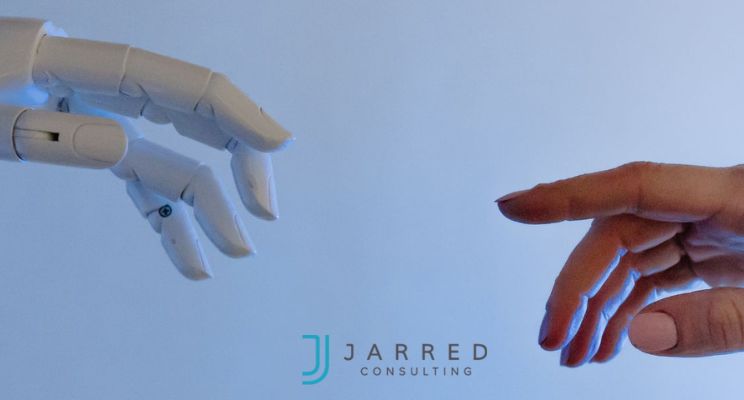7 questions every leader should be asking right now
According to former Google X boss Mo Gawdat ‘Sci-fi has ended. We’re in sci-fact.’* With years of experience of being knee-deep in AI development, he has three predictions:- AI will happen.
- It will be smarter than humans.
- Mistakes that bring about hardship will happen.
AI and us
There is no doubt that computers have extended our intelligence but machine deep learning continues to develop exponentially. It won’t be long before AI is faster and smarter than the humans who created it. And who created it? ‘AI will not be made to think like a human. It will be made to think like economists, sales executives, soldiers, politicians and corporations.’ Gordat states. ‘We’re not designing AI to think like a human. We’re designing it to think like one type of human.’ We mustn’t allow one demographic to inform AI as it develops. If AI has been written by one kind of human with one type of worldview and a particular set of needs, each of us has a responsibility to expand its understanding in the broadest sense. We have to teach it to see through a lens of diversity and inclusion. Here’s our challenge and it’s a compelling and urgent one – if AI dominance is inevitable, what are we teaching it? What are we feeding it in terms of our intentions, our culture and how we treat each other? What do we value about individuals, communities and the human race? How we want it to deal with us is bound up in our behaviours towards each other. This has huge ramifications for HR.7 questions you need to be asking right now
- What are we communicating and what tone are we using? Virtual assistants and chatbots are already being embraced by leaders to communicate and engage with employees more efficiently. Are we teaching AI that we’re kind, compassionate and respectful?
- What are we teaching AI about our values and what we find valuable? Access and insight into data are available like never before, empowering leaders to make informed strategic decisions in a fraction of the time. What do these decisions say about what we hold dear and what we choose to discard? Will the machine understand that the numbers it is crunching are human lives?
- What are we supporting people with and why? AI is already changing the way we deliver training and development. Away from a formal classroom setting, this can be delivered in a more personal way, where individuals can learn in a way that’s more natural to them, can be drawn to things that they find interesting and can easily plug gaps in their skillset. But are we making it truly accessible for everyone? What are we teaching the machines about organic human curiosity?
- What are we automating? At this point, every employee could be looking over their shoulder checking out for when AI will be coming for their job. Now is the time to ask serious questions about what success looks like, what we prioritise and value, and what we want to ring-fence for humans. How do we take up the role of machine teacher as we integrate it into daily routines?
- What does efficiency mean? The utopian view where machines take over the mundane so that we can enjoy more creative, leisure and family time relies on us teaching AI about what humans want. Does money come first or are we also thinking about employee comfort, safety and happiness? Do we necessarily want to be seen as efficient – and if we’re not, will we be retired?
- What is the landscape you want to see? If AI is going to be making decisions based on our behaviour, we need to take a long, hard look at what that is. Each business is its own microclimate with an impact on the families, communities and the wider world around it. Bear in mind that when one AI machine learns, they all learn so the ripple effect doesn’t move at a human pace. Therefore the time to double down on treating others as you would be treated is now – for the good of everyone.
- How will you look back on this cultural moment? We could view this as a dystopian time or one of exciting opportunities to radically change the way we live and work. What if we were to herald in a time of greater flexibility for human beings, away from the regimens of career and the nine-to-five, to a time when we can get back to each other, to nature and to what interests us? If we want the latter, then the time to start the serious work of making it happen is now.
